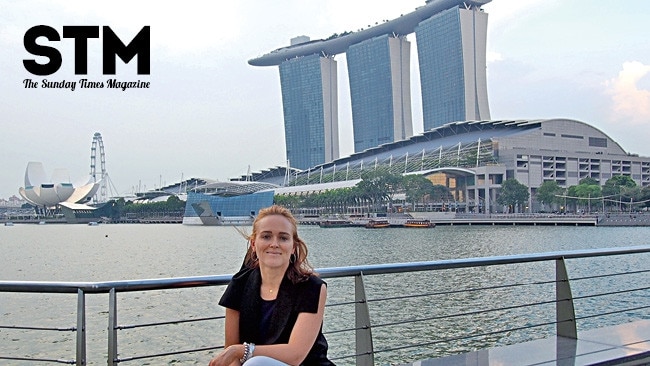Game time for Beijing
THOUSANDS of hotels in Beijing will be empty after the Olympics in August, which means five-star bargains for those who wait, writes Greg Hackett.
WHEN the dust finally settles after this year's Olympics, Beijing is sure to be a hot destination.
China's capital has been under a cloud in recent years because of the increasing air pollution that comes with a surging economy.
But the construction boom – especially the rush to build 40 stadiums (and renovate another 45) and more than 300 hotels for the XXIX Olympiad – has added a temporary haze of concrete dust.
Once the Games are done and dusted at the end of August, the tourism infrastructure will remain ... as will thousands of empty hotel rooms. That can only mean bargain prices for holiday makers.
It will be the perfect opportunity to sample some five-star platinum luxury, such as the Sofitel Wanda.
The Wanda is giant French hotel chain Accor's flagship property in China. It is 27 storeys of opulence and first-class service. The 417 rooms and suites have electrochromatic windows separating bathroom from bedroom. Flick a switch and the window changes from frosted to clear. The main windows are triple glazed to muffle all the noises of an industrious city.
The Presidential Suite boasts the largest Sofitel MyBed in the world. Imagine two king-size beds side by side – it's huge and soft. This is where French President Nicholas Sarkozy called home during his visit in November.
Dining is a culinary tour of the world: French a la carte in the moody Le Pre Lenotre restaurant, Japanese barbecue in Kagoya Hachibay (the stone-and-water decor is a feast for the eyes), traditional Cantonese – so popular with Australians – in the Farm House Restaurant, and the sophisticated VIC (Voyage of International Cuisines), an open kitchen serving Chinese, French, Indian, Italian, Japanese and US dishes.
Afterwards, take a relaxing digestif in the funky M Bar while enjoying the Cantonese, French and English repertoire of local songstress Carmen.
Bottled water is complimentary in the better hotels. It will be interesting to see the reaction to the city's water quality during the Games.
The Wanda is on The Avenue of Everlasting Peace, which is a 47km long straight road about 50m wide. At peak hour, it seems like the world's longest carpark, although traffic will be regulated during the two weeks of the Games.
Locals have good financial reason to use public transport – a bus trip costs six Australian cents for 12km and seven cents every kilometre after that.
Australia's Olympic officials are staying just down the road at the Sofitel's smaller sister hotel, the Novotel Peace Beijing.
Beijing is trying to leave behind the notoriety of fake goods and pirated software. It still goes on, but out of sight. For quality goods at bargain prices, there's the Xiushui Silk Market – but only if you are a barter junkie. The pushy store-holders will drive you mad.
Better still, Helen Wong's Tours will take you to the Yulong Friendship Store and Friendship Restaurant on the main freeway to the Great Wall of China at Badaling, on the northern fringe of Beijing.
Here you get an excellent feed for a few dollars and some of the best value shopping. Beautiful enamel copper vases are handmade on site and you'll pick up good quality jade and gold jewellery, silk clothing and hand-carved stone ornaments and timber furniture.
"We will be visiting the Great Wall of China," says our tour guide Xu with a grin. "And it wasn't built to keep out rabbits. It's 6000km long and was to stop the Mongols and other raiders."
It goes to show the power of advertising, that the amusing Telstra television advertisement has made an impact in China.
But back to the Great Wall ... you don't really walk the wall. You climb it. Or stagger up it.
Some parts are steep stairs and high enough above sea level to leave you short of breath. But the view is breathtaking, even on a hazy autumn day. It is one of the man-made wonders of the world.
The hawkers, with their cheap wares and fake Rolexes, are a pest. They are around every bend and over every hump. They never seem to be short of breath. The Badaling section of the wall is popular with tourists because it remains mostly in original condition after only minor restoration.
Some parts of the wall date from 220BC, but this section was built during the Ming Dynasty (1368-1644) and has an average altitude of more than 1000m.
At regular intervals are signal-fire platforms, like blockhouses, that were used to send warning signals.
The amount of smoke and gunfire conveyed specific military information. One release of smoke with one shot of gunfire signified 100 enemies, two meant 500 and three indicated more than 1000 foes.
Once one signal platform fired a beacon, the others would follow to alert headquarters about the strength of the enemy.
Perhaps today's hawkers are using similar tactics on western tourists.
Sunday Mail (QLD)



